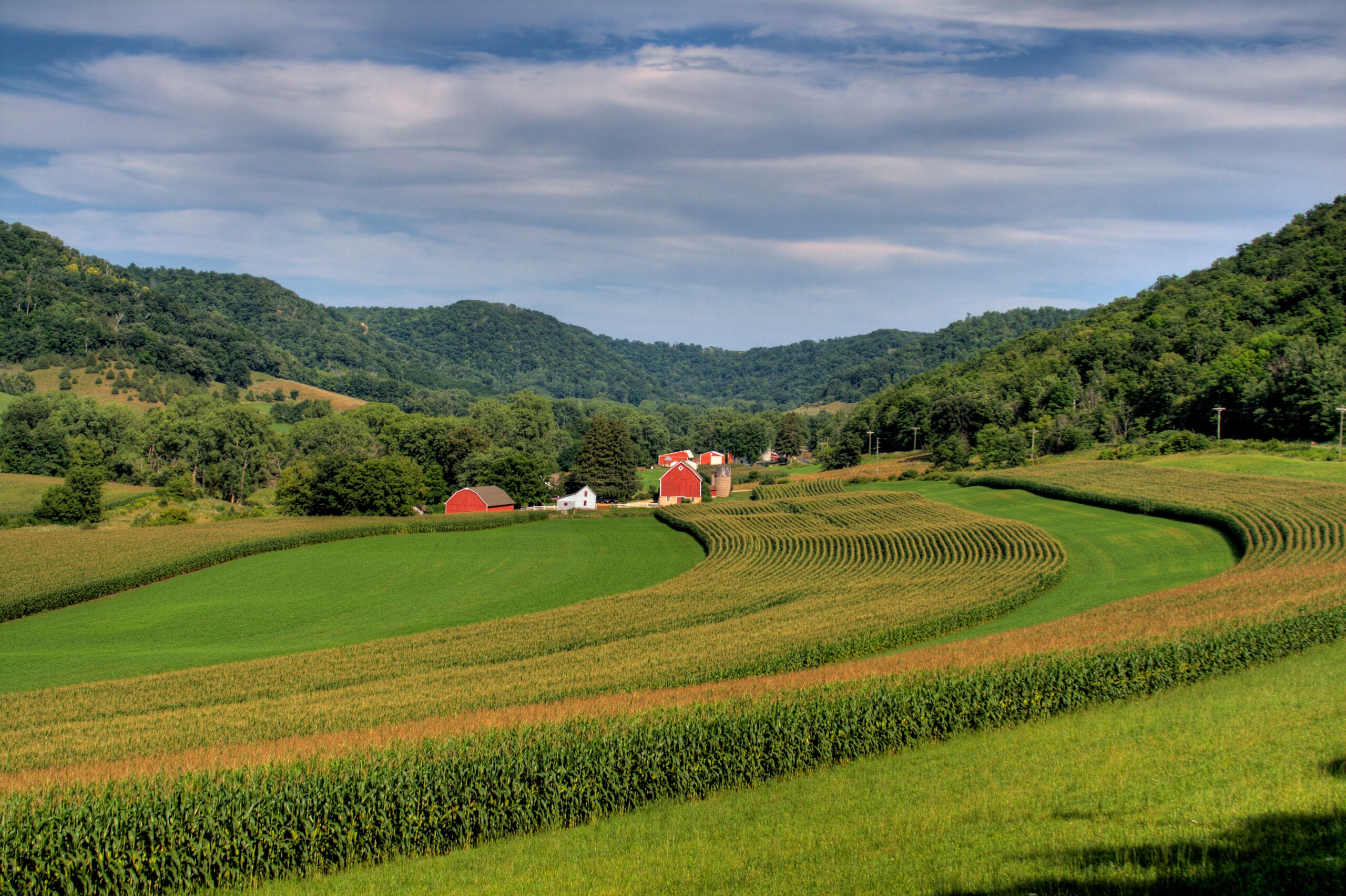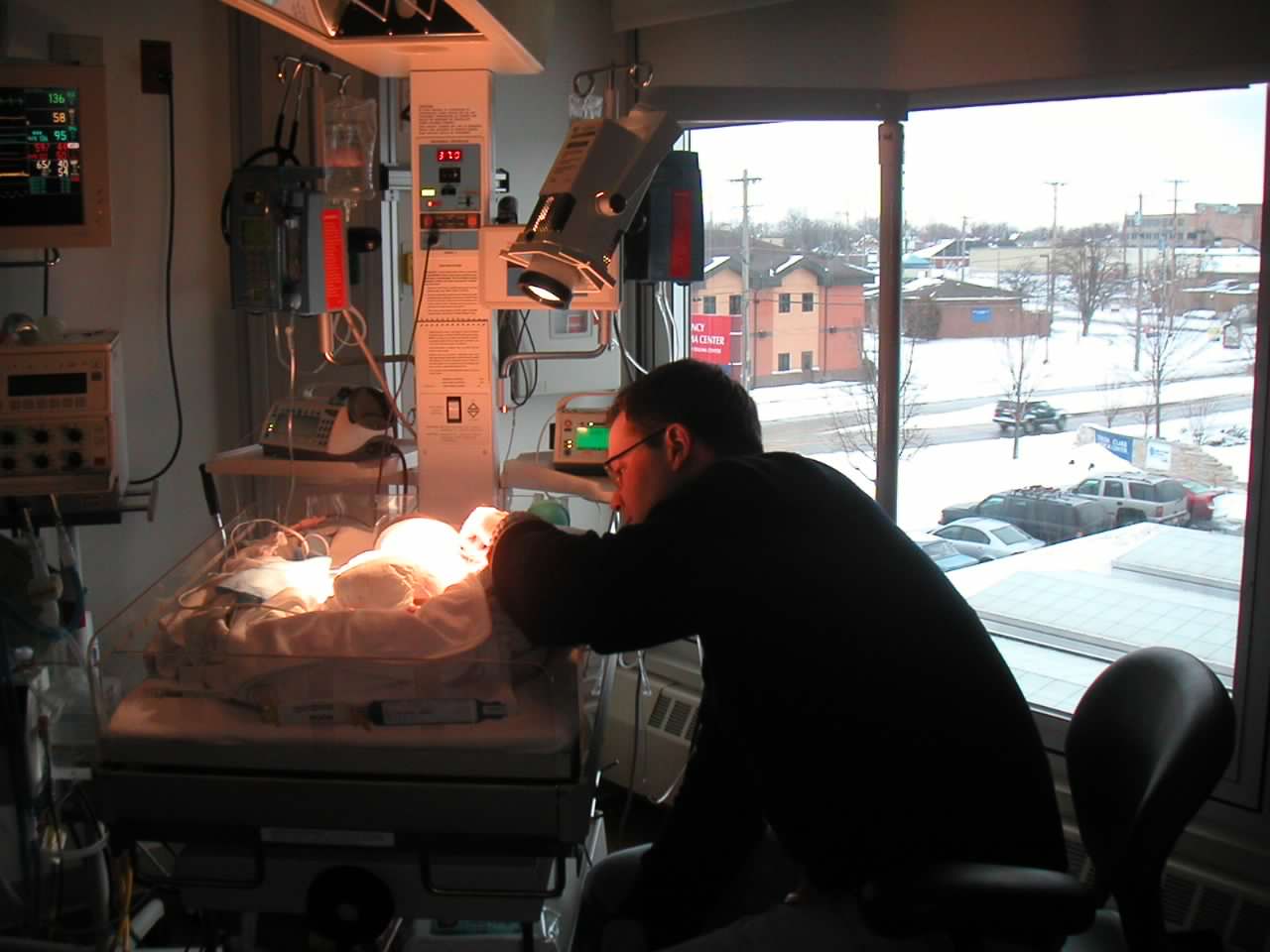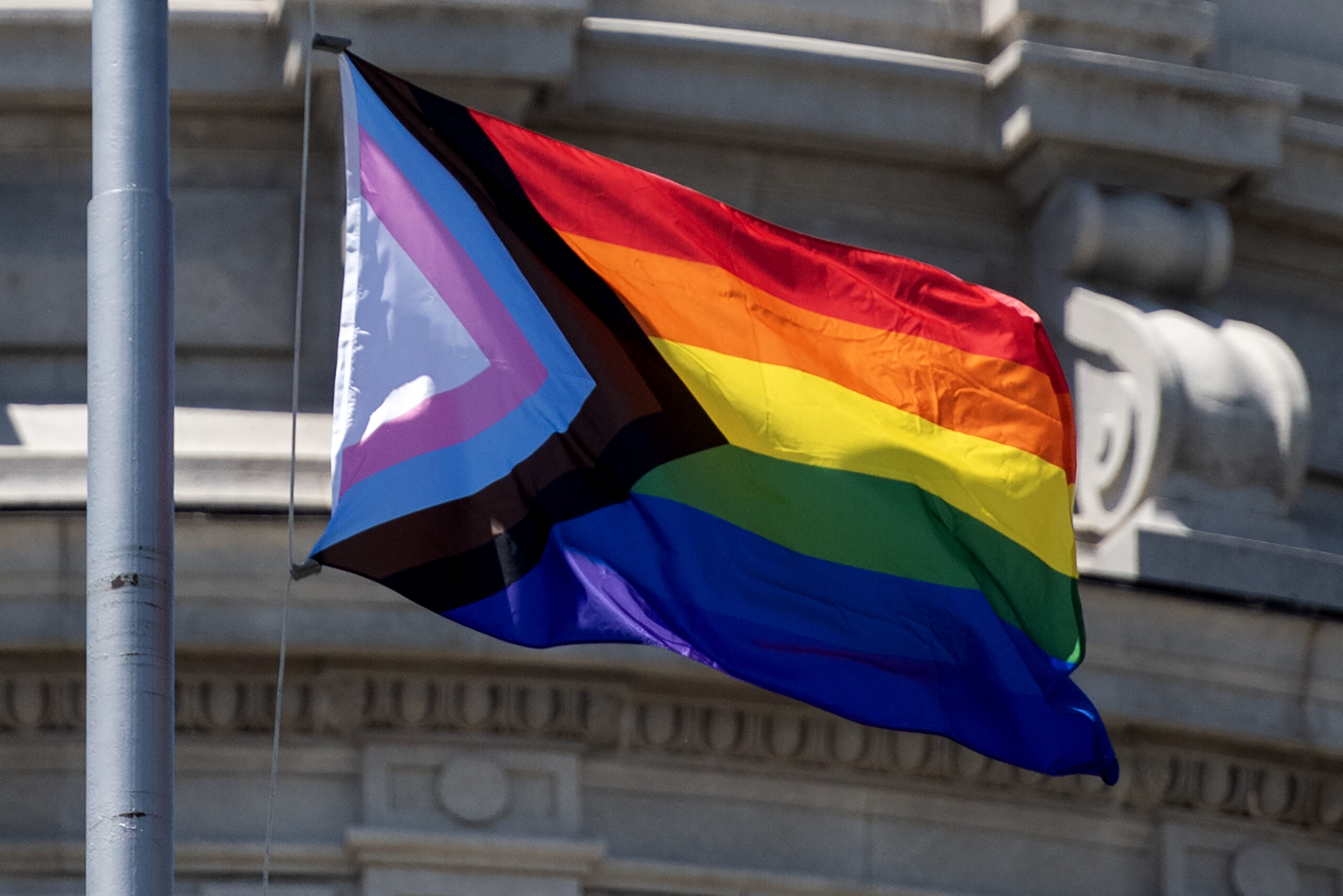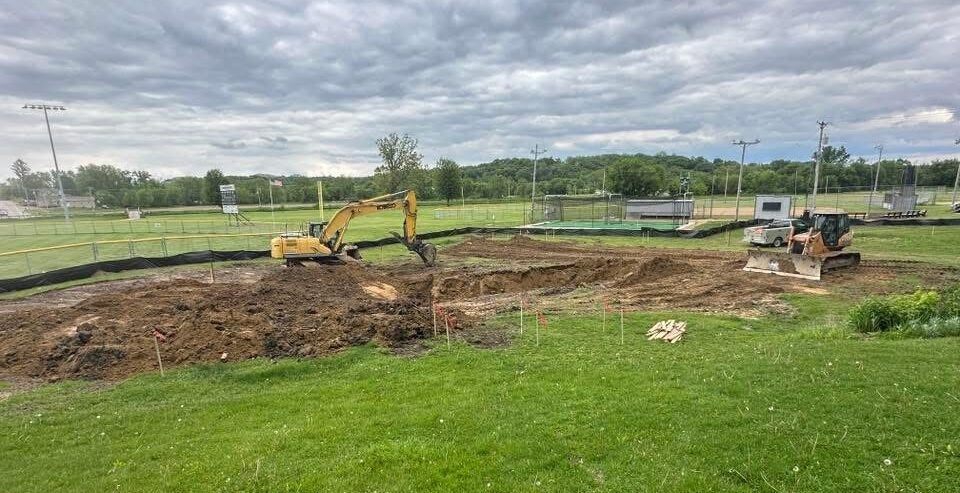Hawthorn McCracken knows it can be hard for LGBTQ+ youth growing up in rural areas. But McCracken has a simple message for kids who might feel different or out of place living in a rural area: Don’t give up on finding your people.
“They’re out there. And maybe you do have to move, but you don’t always have to move to a big city if you don’t want to,” McCracken recently told WPR’s “Wisconsin Today.” “There are people out there who see the world in a similar way as you or who see the world in a way that’s going to challenge you in an awesome way and help you grow into a better person.”
McCracken — who uses they/them pronouns — grew up on a farm in rural east Tennessee and now lives in Wisconsin’s Driftless Area. They started a social group called Trans on the Land to help connect gay, lesbian, transgender and nonbinary folks in rural parts of the state.
News with a little more humanity
WPR’s “Wisconsin Today” newsletter keeps you connected to the state you love without feeling overwhelmed. No paywall. No agenda. No corporate filter.
They spoke to “Wisconsin Today” about the group and what it is like for LGBTQ+ folks in rural areas.
The following has been edited for clarity and brevity.
Joe Tarr: What can you tell me about the group you’re involved with, Trans on the Land?
Hawthorn McCracken: I have a chronic problem of starting social organizations to find friends because that’s who I am. That’s the only way I know how to find buddies as a grown-up. And so the group I founded is called Trans on the Land. We are not a nonprofit. We are not officially organized in any manner, but that’s the name I came up with for our cute little logo, and it was actually inspired by the Soil Sisters.
I just loved that it was such a different environment from traditional agriculture circles. I appreciated that social environment, and I wanted to create something for trans and nonbinary people who were also interested in not just farming, but foraging and living rurally. It’s become a little social club for folks who live in my rural area because it’s really tough to be queer and especially trans in a rural area.
We’re scattered in the Driftless, and we’ve got a small local town where there’s a decent amount of culture. It’s really nice, but it’s definitely not the same as even being in La Crosse, much less Madison or Milwaukee, where you can go down the road to the LGBT center and hang out and do programming.
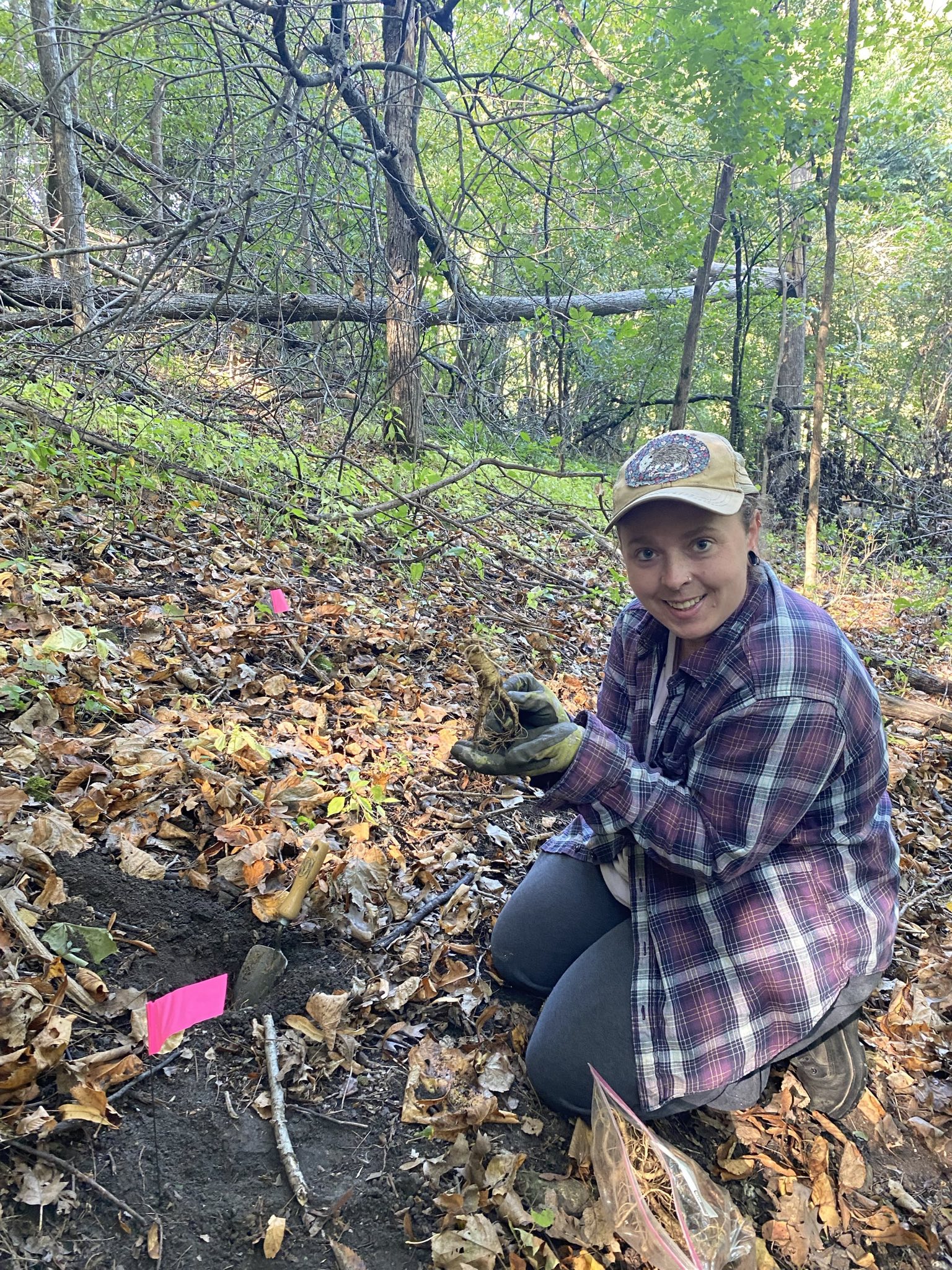
JT: What is it like for trans people in rural areas like yours?
HM: The small town that we’re near is relatively progressive, but it can still be isolating. It’s especially difficult to find affirming health care. I get gendered as a woman, and I just kind of go with it because it’s not worth arguing. People still drive to Madison to get health care, and it’s two-and-a-half hours away for us.
Something I am hoping we do more of, and has been really important to me, especially with all these political shifts, is just being able to be visible in our community. Growing up in east Tennessee, I did not have any queer role models. I did not know any older queers. I know they’re out there. I grew up outside of Johnson City and moved up here and learned in college that apparently Johnson City is like a very queer scene, which I never knew because I was stuck in Bible camp.
[It’s important to me] to be a visible example and to show the queer youth in our area that you don’t have to move away. You can still live in the country. You can follow whatever dream you have, if you want to go into farming or just to stay in this beautiful landscape and be yourself.
JT: What do you like about living in rural areas, the Driftless in particular? What draws and keeps you there?
HM: A lot of it is about the sensory experience. It’s quiet, and I don’t have to worry about sirens going off at 2 a.m., usually. And I appreciate the freedom to be unobserved and just be in a less densely populated area that is ecologically diverse. Being able to walk out my front door and see different species of plants and animals and fungi is really important to me.
Growing up in the Blue Ridge of east Tennessee, I felt like the mountains really held you. I lived down in Rock County, Wisconsin for a while, and that’s corn country. It’s very flat. I can’t deal with a flat horizon. I feel like the tornadoes are going to come and get me. So, being able to come to the Driftless and see a region that’s actually very similar to Appalachia and shares a lot of geological similarities, was amazing.
JT: The Trump administration has promoted anti-trans policies and rhetoric. How do you feel about this moment and where we’re heading?
HM: I feel angry and spiteful, I think, is the word. Defiant. … We are out here creating joyful, beautiful, sacred community. And to the people who are trying to tear down trans people, like what is your perception of beauty? What is your perception of joy? How are you living your life if you’re spending so much time tearing down other people and attacking people for things that are not affecting you at all.
The most important thing that we can do in the face of that hate is to celebrate the beauty of who we are and to celebrate queer joy and trans joy as loud as we can, and we’ve been doing a lot of art making. Plant seeds and stand in defiance of that [hate].
Editor’s note: This story was updated March 26 to remove an erroneous detail about the Soil Sisters group.

